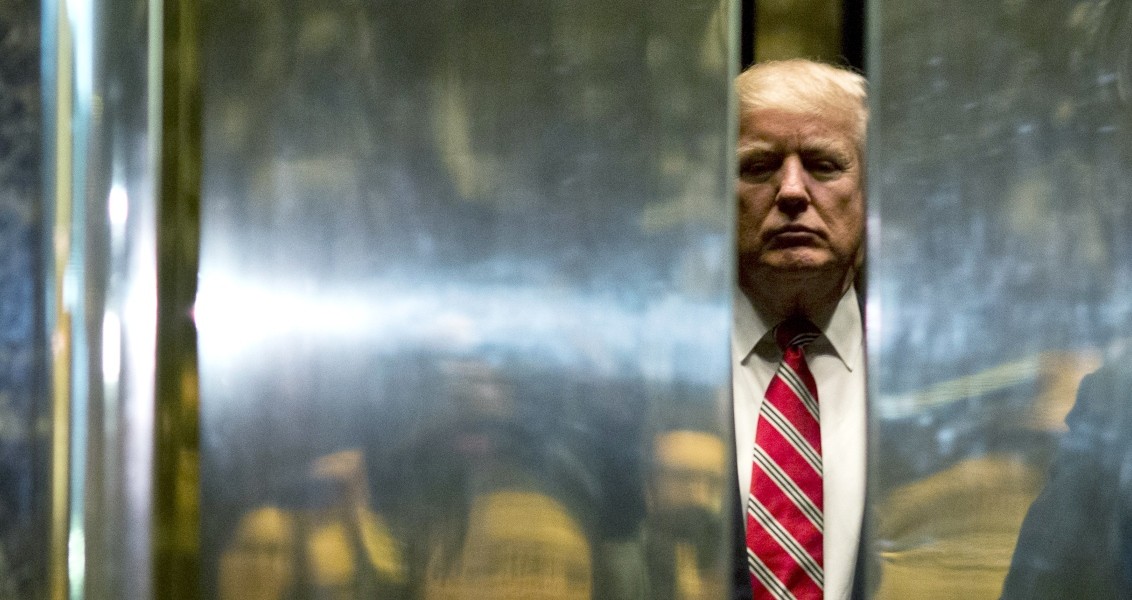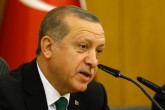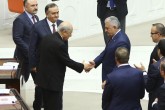The inauguration of Donald Trump as the 45th president of the United States has caused many discussions both inside the U.S. and in the world. Trump’s populist, ultra-nationalist, protectionist and exclusionist political discourse throughout his election campaign led to nation-wide and worldwide protests against his administration from the very first day of Trump’s presidency. Considering the fear many American societal groups have about the end of their traditional liberal values, the fierce opposition of mainstream American – and Western – media to the Trump administration and the uneasiness of the state establishment in Washington D.C., domestic polarization will increase in the country. It can be asserted as well that this increased polarization may cause political instability in the U.S.
The U.S. has been experiencing the biggest political challenge to its sociopolitical unity and its global hegemony throughout history since the Civil War (1861-1865). The U.S., which is known for its success as a modern creation bringing together different social and cultural groups in a melting pot, is now being challenged from inside. The most recent developments can only be compared with the circumstances of the Civil War; therefore, reconsidering the factors that triggered that war may shed light on today’s social and political discussions.
Some important factors caused the war between the unionist Northerners and the secessionist Southerners. One of the main root causes of political tension that led to the Civil War was the contentious slavery issue. The growth of the Abolition Movement contributed to the expansion of support for the abolishment of slavery nationwide. The second main source of the Civil War was the differences in economic understanding, social structure, lifestyles, customs and political values between the North and South. While the North was urbanized and industrialized, the South was heavily dependent on agricultural production.
The third factor was the difference in their respective perception of international trade. While Southerners were in favor of free trade and lower tariffs, Northerners supported the imposition of higher tariffs. That is, economic protectionism was another fractious issue between the warring sides.
The fourth cause was the difference between the two political camps. While one group supported greater state rights, the other camp asked for more control from the federal government. On the one hand, the South claimed that each state had the right to secede from the Union. On the other, the North considered this quest as a rejection of the perpetual union envisaged by the Founding Fathers.
At the end of the Civil War, Northerners led by Abraham Lincoln won the war; eventually, the national unity of the country was restored, the national government was strengthened, slavery was abolished and freed slaves were granted civil rights. After the U.S. ensured its territorial integrity, it began to act as a global power in a very short period of time. First, it fought with the Spanish on two fronts to acquire colonies both in the Caribbean Sea and in East Asia. Then, it got involved in the affairs of the old world, participated in the first and second world wars and ultimately became a superpower. In the wake of Soviet dismemberment, it became the sole hegemon state in the world.
At the zenith of its hegemony, the U.S. began to lose power relatively, and its share of the world economy dropped dramatically. On the one hand, some groups in the state began to question their relative decline and to blame newcomers. On the other hand, many rising powers, such as China, Russia, Brazil and Germany, began to question American economic, cultural and political hegemony. These developments ended with the triumph of the populist conservative Trump.
Even though those who voted for Trump consider his presidency a remedy for domestic and foreign policy problems, many others see the election of Trump as a watershed in American politics, which will cause the deepening of sociopolitical polarization. Similar to the Civil War era, polarized American society has substantial economic, cultural and political differences. While the pro-Trump group supports economic and cultural protectionism, political isolationism and unilateralism, opposition groups support multiculturalism and internationalism.
American people at large fear that the exclusionist political discourse of the Trump administration will further estrange sub-national identities of American people. Anti-Trump groups are anxious about the otherization and alienation of women, Muslims, Afro-Americans, Latinos, Asians and many other social and cultural groups by the federal system. There is increasing friction in American society about the borders of civil rights. It seems that this cleavage will increase in future days.
A similar friction is witnessed in the foreign policy orientation as well. Today, no state can defeat the U.S. militarily, and no state dares challenge American hegemony. Domestic developments leading to political instability may cause impotence in American global hegemony. During the Trump administration, the U.S. will spend more energy, money and political capital for domestic stabilization. The U.S., which may lose its attractiveness due to the loss of liberal values, will have to decrease its financial and military contributions to its allies; that is, the fewer resources the U.S. has, the less interventionist it will be. This will increasingly move Trump to force American allies to share the global burden and contribute to the provision of global public goods. There is no doubt that other global and middle powers that did not participate in the creation of the current global system will refrain from meeting American expectations.
Following a protectionist, i.e. defensive, economic, cultural and political policy, the new American administration will face difficulty in abiding by the rules and norms that it in particular – and the bloc that it was leading in general – were introduced since World War II. Non-implementation of current global norms and rules will require the establishment of a new global system. This whole process and the period of transition may lead to global chaos. It is up to global powers to manage this transitory phase at the lowest cost.
It is clear that an exclusionist national or international political discourse will end in a lose-lose situation. Therefore, the Trump administration has to pursue a responsible policy toward both domestic opposition groups and international adversaries.
[Daily Sabah, January 26, 2017]



